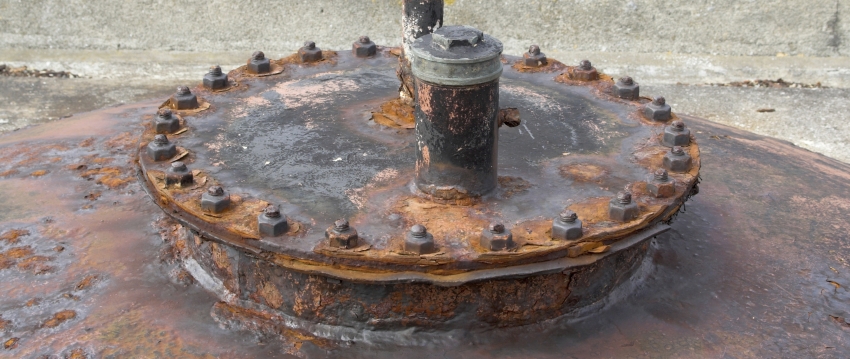Solid particulate contamination in diesel
Of all the different forms of diesel contamination, solid particulate contamination is the most obvious risk. Fuel contaminated with dust, grit and rust is clearly undesirable.
Pages 15-16 of our Fuel Conditioning Handbook describe the various forms of solid particulate contamination, and pages 21-23 advise on how it can be measured. Click here to request your free copy
Yet particulate contamination is also the easiest problem to both avoid and treat. Good fuel management avoids the problem occurring but if you’re already affected by particulate contamination, fuel polishing and tank cleaning can remove it.
Video: Understanding Fuel Contamination
Solid particulate contamination comes in many forms
Particulate contamination has a host of causes:
- Asphaltines: asphaltines are hard, brittle particles which are not soluble in fuel. They are generally less than 2µm making them harmless to engine injectors but they can agglomerate to block engine filters.
- Colloid Carbon: stored diesel darkens due to oxidation, repolymerisation and agglomeration. This is accompanied by the formation of colloid carbon sediment that clogs filters and causes poor combustion.
- Grit and sand: grit and sand typically find their way into fuel storage tanks through unprotected or poorly sited air vents.
- Rust: diesel fuel is corrosive. The water content in modern biodiesel encourages the rusting process. It is inevitable that some rusting of fuel tanks will occur.
- Wax: wax crystals can form in diesel at temperatures below 7°C.
- Sludge: sludge is often found at the bottom of fuel tanks. Sludge is likely to form as a combination of the above contaminants and care should be taken when dealing with this substance. A proper diagnostic process should be followed when recommending a solution.

Of all the different forms of diesel contamination, solid particulate contamination is the most obvious risk.
Solid particulate contamination can be measured
Particulate contamination can be measured according to the ISO cleanliness code as defined by ISO 4406:1990.
The code is made up of three numbers that identify the number of particles of different sizes that are present in one millilitre of fuel. Diesel fuel cleanliness is governed by one specific level of that code: 18/16/13
- The first number refers to the number of particles greater than 4µm (on the ISO scale, 18 means between 1,300 and 2,500 particles)
- The second number refers to the number of particles greater than 6µm (on the ISO scale, 16 means between 320 and 640 particles)
- The third number refers to the number of particles greater than 14µm (on the ISO scale, 13 means between 40 and 80 particles)
To give you an idea of how stringent this code is:
- A grain of salt is about 100µm
- A human hair is about 70µm
- The naked eye can detect particles at about 40µm
- A single bacteria is between 0.3 and 60µm
How can you prevent particulate contamination?
Prevention is always best. The key to maintaining fuel quality is good housekeeping. IPU Group recommends following a comprehensive fuel conditioning programme to ensure that your diesel-powered equipment runs reliably and economically. An effective programme includes four stages: testing, cleaning, polishing and stabilisation.

IPU’s Fuel Conditioning Programme contains 4 stages: Testing, Cleaning, Polishing and Stabilisation.
What can be done for tanks already infected with particulates?
If testing has already shown that your tanks fall below the 18/16/13 level dictated by ISO 4406, IPU Group offers ClearTank, a comprehensive tank cleaning service that removes contamination that has grown beyond the level which polishing can clear. ClearTank addresses water, microbial and solid particulate contamination.
How can I prevent particulate contamination?
Prevention is always best – the key to maintaining fuel quality is simply good housekeeping.
We recommend the following for best practice:
- Where possible, purchase your diesel from reliable sources to know specifications
- Ensure the condition of your fuel tanks; keeping them leak free and in good condition
- Always use fuel testing and sampling to monitor contamination levels
- Avoid fuel contact with zinc and copper containing metals as they promote oxidation
- If storing fuel in multiple tanks, employ rotation system so oldest fuel is used first
- Where possible keep fuel cool to minimise water absorption.
Most importantly, impose a full Fuel Conditioning Programme.
